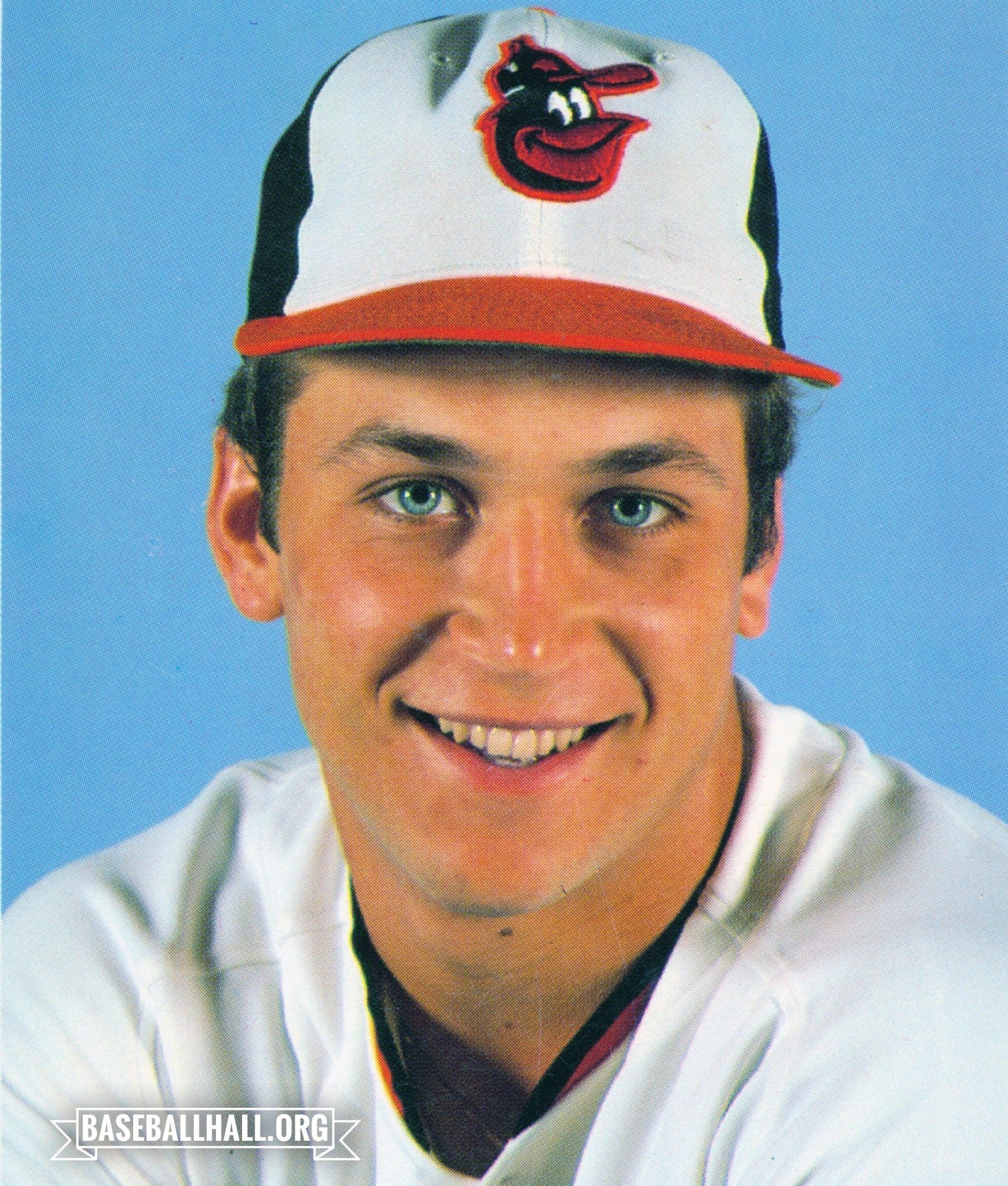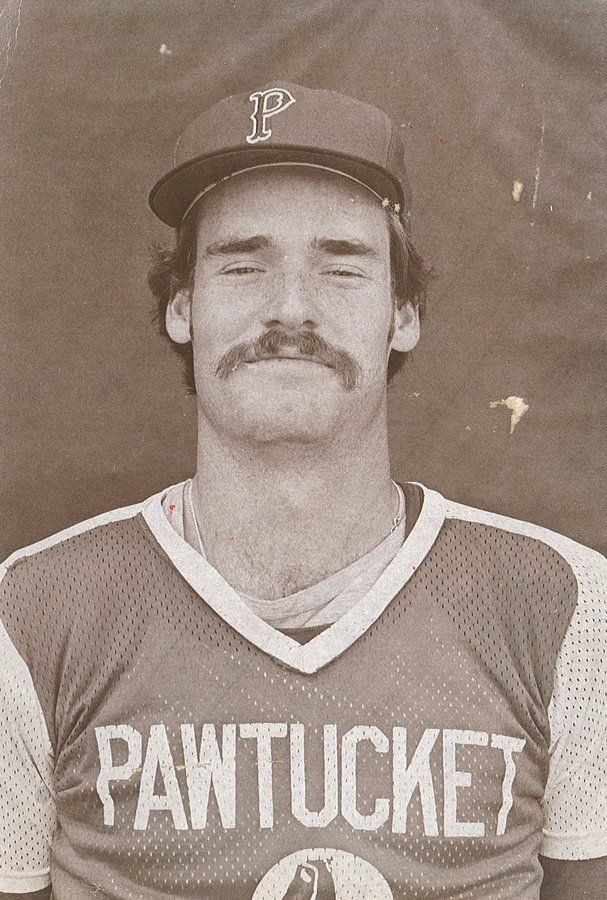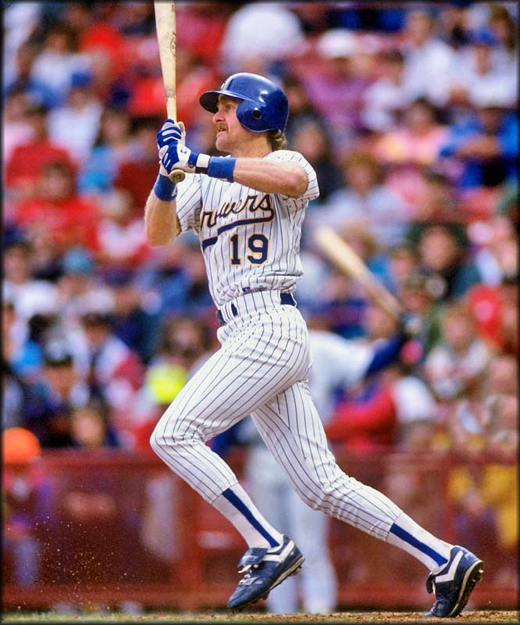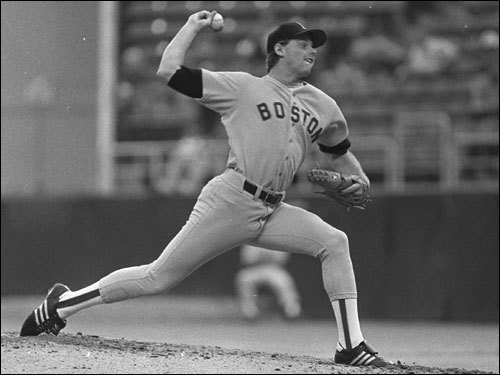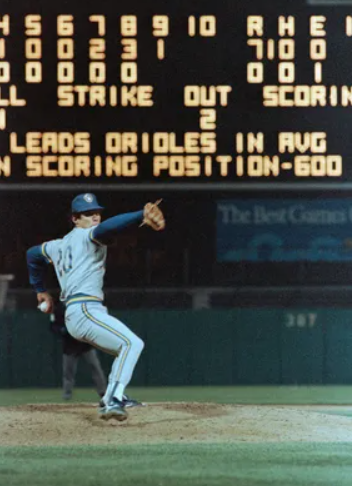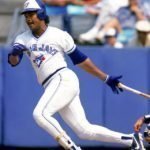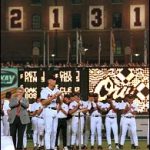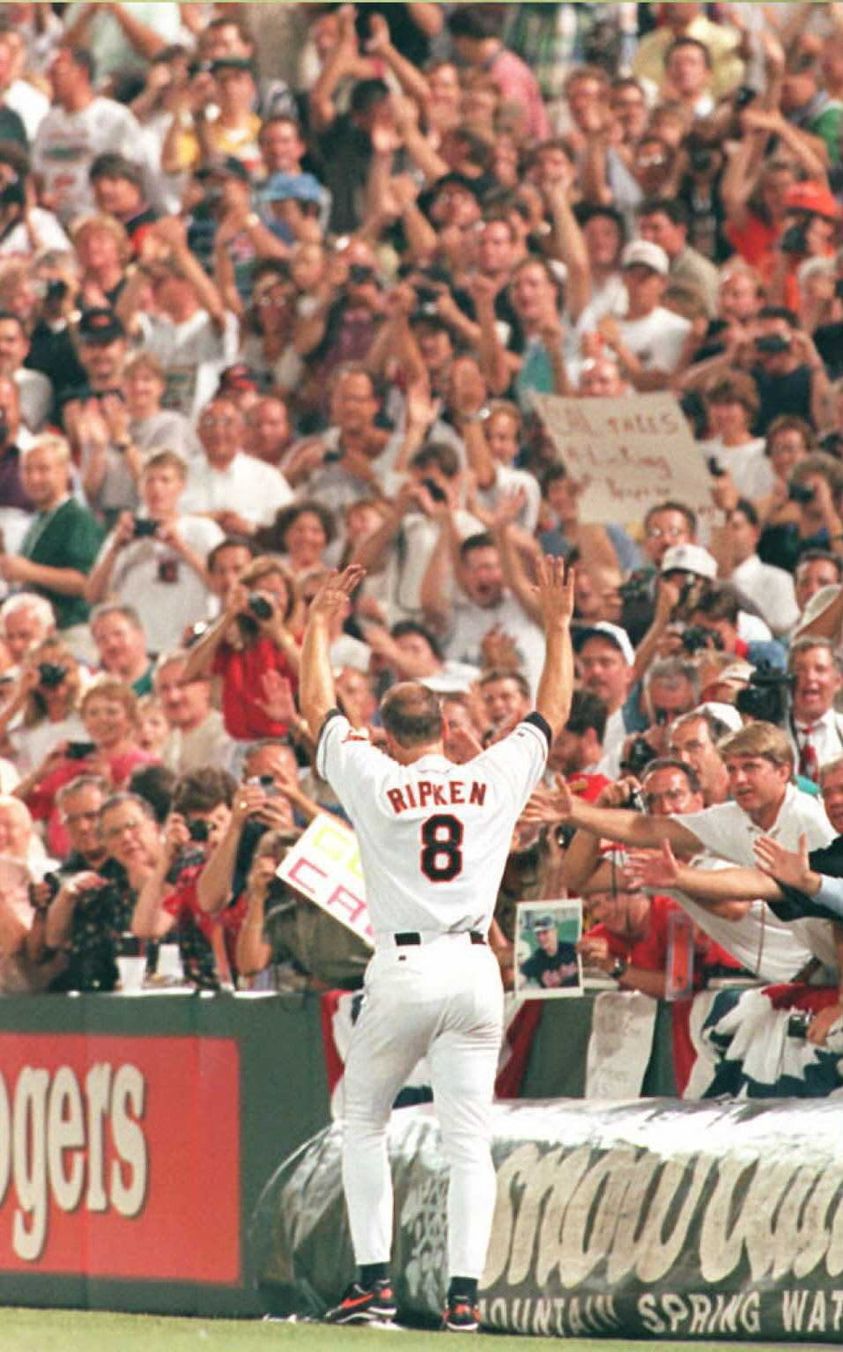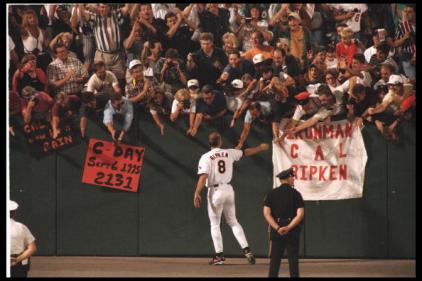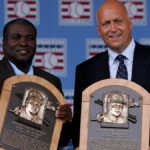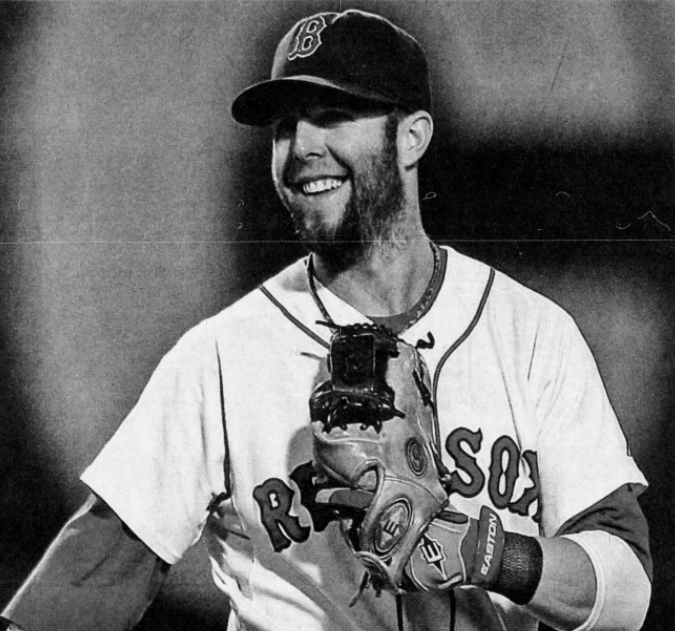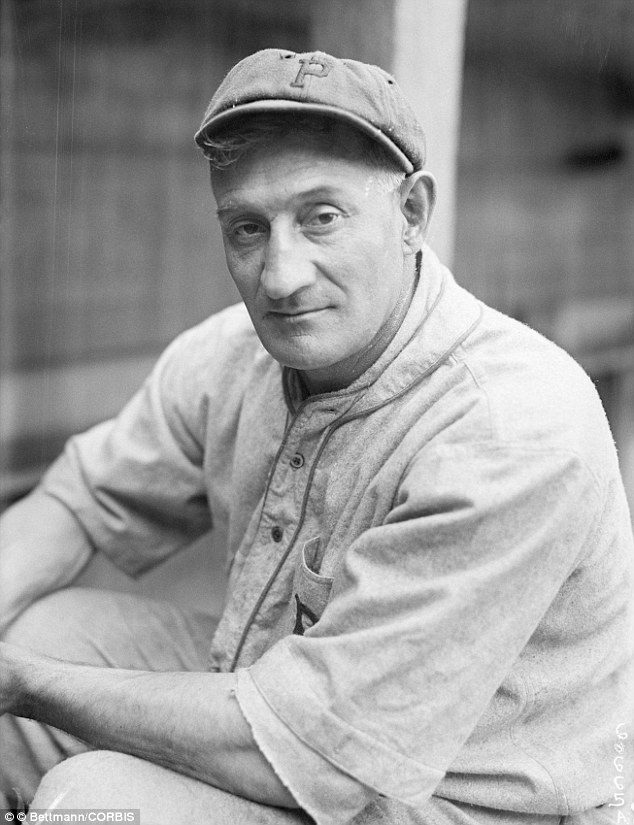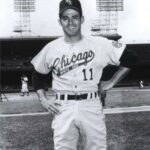Cal Ripken Jr. Biography
Cal Ripken Jr.
Positions: Shortstop and Third Baseman
Bats: Right • Throws: Right
6-4, 200lb (193cm, 90kg)
Born: August 24, 1960 in Havre de Grace, MD
Draft: Drafted by the Baltimore Orioles in the 2nd round of the 1978 MLB June Amateur Draft from Aberdeen HS (Aberdeen, MD).
High School: Aberdeen HS (Aberdeen, MD)
Debut: August 10, 1981 ( 12,078th in MLB history)
vs. KCR 0 AB, 0 H, 0 HR, 0 RBI, 0 SB
Last Game: October 6, 2001
vs. BOS 3 AB, 0 H, 0 HR, 0 RBI, 0 SB
Hall of Fame: Inducted as Player in 2007. (Voted by BBWAA on 537/545 ballots)
View Cal Ripken Jr.’s Page at the Baseball Hall of Fame (plaque, photos, videos).
Full Name: Calvin Edwin Ripken
Nicknames: Iron Man or Rip
View Player Bio from the SABR BioProject
Relatives: Brother of Billy Ripken; Son of Cal Ripken Sr.
Nine Players Who Debuted in 1981
Cal Ripken Jr.
Gary Gaetti
Chili Davis
Brett Butler
Ryne Sandberg
Steve Bedrosian
Tom Brunansky
Kent Hrbek
Steve Sax
The Cal Ripken Jr. Teammate Team
C: Charles Johnson
1B: Eddie Murray
2B: Roberto Alomar
3B: Doug DeCinces
SS: Walt Weiss
LF: Albert Belle
CF: Brady Anderson
RF: Eric Davis
DH: Ken Singleton
SP: Jim Palmer
SP: Mike Flanagan
SP: Mike Mussina
SP: Mike Boddicker
SP: Dennis Martinez
RP: Gregg Olson
M: Cal Ripken Sr.
Vintage Baseball HOT ON EBAY
Card Collections ENDING SOON ON EBAY
MOST WANTED ROOKIE CARDS
VINTAGE SPORTS TICKETS
Baseball Hall of Famers
Notable Events and Chronology for Cal Ripken Jr. Career
Cal Ripken Jr. broke a baseball record for longevity that few thought would ever be approached, and ended his 21-year career with the “unbreakable” record for consecutive games played.
Ripken was born in 1960 in Havre de Grace, Md., into a baseball family. He is the son of former Baltimore Orioles manager Cal Ripken, who was a former player turned baseball coach at the time of his son’s birth. Ripken Jr. got to spend as much time as possible with his father, traveling with him during the summers and being involved with the Orioles as much as possible.
Although he was a two-time high school letter winner in soccer, Ripken Jr. dreamed of being a major league baseball player since he was eight years old. After hitting .492 as a senior in high school on the way to a state title, he was drafted by the Orioles in 1978.
In a remarkable case of foreshadowing, Ripken played in the longest professional baseball game ever as a minor leaguer in a 33-inning affair between his Rochester Red Wings and the Pawtucket Red Sox. Ripken played third base and stayed in the game all 33 innings. The aforementioned streak began in May of 1982 and did not end until 1998. Ripken followed his breakout 1982 season with an even better 1983, and in so doing set another record of sorts. He followed his Rookie of the Year award with The American League Most Valuable Player award the next season, hitting .318 with 27 home runs and 102 RBI. He was named to the All-Star Game for the first time in 1983, and he was named to the next 18 All-Star teams as well.
In the 1983 season, Ripken became a full-time shortstop, even though, at 6-4, he was unusually tall for that position. Ripken played in his first and only World Series in 1983. He batted only .167 with only one RBI, but the Orioles defeated the Philadelphia Phillies 4-1.
In 1987, Cal Ripken Sr. senior became manager of the Orioles and Ripken Jr. played for his dad for less than two years. Billy Ripken, brother to Cal Ripken Jr., was also on the team that year and Ripken Sr. became the first manager to write the names of two sons into the lineup.
Ripken played 8,243 consecutive innings of baseball from 1982 through 1997. That streak ended on Sept. 14, 1988 when Ripken Sr. took Ripken Jr. out of the blowout loss in the eighth inning and inserted Ron Washington.
In 1991, Ripken had his best hitting season with a .323 batting average, 34 home runs and 114 RBI, (the home runs and RBI totals were career highs). He won his second American League Most Valuable Player award that season (the only player ever to win the award while playing for a sub-.500 team), and was the MVP of the 1991 All-Star Game. He won the Home Run Derby at the All-Star game as well.
The Orioles’ former home, Memorial Stadium, hosted its last major league game Oct. 6, 1991, and Ripken was coincidentally the last Oriole to bat there, as he hit into a double play to end the last innings.
Ripken’s longevity came because he could hit for average but also because he could play his position better than most anyone else in the game. In 1990, he set the Major League Baseball record for fielding percentage at shortstop at .996, with just three errors in 680 chances. He led the American League in assists several times.
The 1998 game in which Ripken broke Gehrig’s record was attended by both President Bill Clinton and vice-president Al Gore. At the moment the game became official after the visiting California Angels’ fifth inning, the game was halted and Ripken was feted by a standing ovation that lasted more than 22 minutes. During the ovation, Ripken did an impromptu run around the outside of the stadium, high-fiving fans.
“Tonight I stand here, overwhelmed, as my name is linked with the great and courageous Lou Gehrig,” Ripken said in his speech that day. “I’m truly humbled to have our names spoken in the same breath.”
Ripken also broke the lesser-known world record of consecutive games played, a mark of 2,216 set by Sachio Kinugasa of Japan.
When the Orioles signed shortstop Mike Bordick from Oakland, Ripken was moved to third base permanently. In 1999, his 19th season, Ripken hit a career was .340, although he played in only 86 games due to an injury at the start of the year.
Ripken reached the 3,000-hit club in April of 2000. He retired at the end of the 2001 season, in the final game of the season at Camden Yards. The original schedule for 2001 had the Orioles finishing the season at Yankee Stadium, but the Sept. 11, 2001 tragedies forced postponement of a week’s worth of games that were tacked onto the end of the regular schedule, allowing the final game of the season to be played in Baltimore.
Ripken was elected to baseball’s Hall of Fame in 2007, and was a first ballot selection with the third highest voting total in baseball history behind pitcher Tom Seaver and Nolan Ryan. Among non-pitching players, his 98.53 voting percentage was the highest ever, and he was not named on only eight of the 545 ballot submitted.
After his playing career ended, Ripken Jr. dedicated his life to increasing the love of baseball from the youth level among underprivileged children. He created Ripken Baseball, that includes Ripken Management and Design, Youth Camps and Clinics, and Ripken Professional Baseball, which owns minor-league teams. Ripken Baseball also designs fields for youth play, college and professional teams.
Ripken writes an youth sports advice column for the Baltimore Sun. In 2007, Ripken was named the Special Sports Envoy for the U.S. State Department.
@ET-DC@eyJkeW5hbWljIjp0cnVlLCJjb250ZW50IjoicG9zdF90YWdzIiwic2V0dGluZ3MiOnsiYmVmb3JlIjoiTGVhcm4gTW9yZSBhYm91dCB0aGUgdGVhbXMsIHBsYXllcnMsIGJhbGwgcGFya3MgYW5kIGV2ZW50cyB0aGF0IGhhcHBlbmVkIG9uIHRoaXMgZGF0ZSBpbiBoaXN0b3J5IC0gLSAtIC0gLSAtIC0gIiwiYWZ0ZXIiOiIiLCJsaW5rX3RvX3Rlcm1fcGFnZSI6Im9uIiwic2VwYXJhdG9yIjoiIHwgIiwiY2F0ZWdvcnlfdHlwZSI6InBvc3RfdGFnIn19@
Vintage Baseball HOT ON EBAY
Card Collections ENDING SOON ON EBAY
MOST WANTED ROOKIE CARDS
VINTAGE SPORTS TICKETS
Baseball Hall of Famers
Factoids, Quotes, Milestones and Odd Facts
Played For
Baltimore Orioles (1981-2001)
Similar: Alex Rodriguez, who is actually a better hitter and defensive shortstop, but resembled Cal in size at the position.
Linked: Lou Gehrig, Robin Yount, Alan Trammell, Billy Ripken, Cal Ripken Sr., Eddie Murray, Tony Gwynn, Mark McGwire
Best Season, 1991
In 1983 he had more hits, more doubles, and more runs, but in 1991 Ripken was a mature player. He won his second MVP award after hitting .323 with 34 homers and a career-high 114 RBI. He silenced the critics who had said in ’90 that he should give the streak a rest. Always a good doubles-hitter, Ripken banged out 46, while walking more than he struck out. He fashioned a new batting stance (like Carl Yastrzemski, Ripken believed in tinkering with his stance constantly) and it paid off.
Awards and Honors
1982 AL Rookie of the Year
1983 AL MVP
1991 ML AS MVP
1991 AL Gold Glove
1991 AL MVP
1992 AL Gold Glove
2001 ML AS MVP
Post-Season Appearances
1983 American League Championship Series
1983 World Series
1996 American League Championship Series
1996 American League Divisional Series
1997 American League Championship Series
1997 American League Divisional Series
Factoid
Cal Ripken Jr. played 8,243 straight innings from June 5, 1982, to Sept. 14, 1987, making it a few months longer than five years without a rest of any kind.
Scouting Report
“…murders fastballs up and in, hangs tough against curves… will often look at the first pitch to try to see what kind of stuff a pitcher has… is aggressive and confident with two strikes… Has very good range, arm strength and accuracy.” — from the 1984 Scouting Report
Family Tree
The Baltimore Orioles and Cal Ripken Jr. were a perfect fit. Ripken’s father Cal Sr. was a vital member of the Baltimore organization for nearly three decades. Ripken Jr. inherited his father’s work ethic and quiet determination, and used those traits to carve out a place in baseball history. Ripken became the most prolific home run hitting shortstop in baseball history.
Ripken’s little brother, Billy, also played in the big leagues, teaming with Cal as the Orioles’ double play combo for a few season.
Where He Played: Ripken played 2,302 games at shortstop, and 675 at third base.
Feats: Longest consecutive-games played streak in baseball history (2,632 games)… On June 14, 1996, Ripken played in his 2,216th consecutive game in a 6-1 win at Kansas City, setting a new consecutive games “world record.” The previous mark of 2,215 was held by third baseman Sachio Kinugasa, who played with the Hiroshima Carp in Japan’s Central League.
Chronology of Cal Ripken Jr.’s Streak
1982
May 30 — The streak begins with Cal Ripken Jr. batting eighth and playing third base in a game against Toronto. Ripken played third base for the first 27 games of the streak… June 5 — Ripken’s record streak of 8,243 consecutive innings, spanning 904 games, begins in a game at Minnesota… July 1 — Orioles manager Earl Weaver moves Ripken to shortstop in a game at Cleveland, despite unanimous disapproval from the critics… Streak: 118 games — Wins A.L. Rookie of the Year Award after hitting .264 with 28 homers and 93 RBI.
1983
Streak: 280 — Plays every inning of every game for the first of four straight seasons… Won A.L. Most Valuable Player Award after hitting .318 with 27 homers and 102 RBI… Led the majors in hits with a club-record 211… Helps the Orioles to a World Series championship over Philadelphia, 4-1.
1984
Streak: 442 — Set A.L. record for assists by a shortstop (583)… Hit .304 with 27 homers and 86 RBI.
1985
April 10 — In Game 444 of the streak Ripken sprained his left ankle during a pickoff play in the third inning of a game against Texas, but does not leave the game. X-rays taken after the game were negative… April 11 — Ripken does not play in an exhibition game at the U.S. Naval Academy… April 12 — Ripken is in the lineup for a game against Toronto to keep the streak alive… Streak: 603 — Hit .282 with 26 homers and 110 RBI.
1986
Streak: 765 — Leads A.L. shortstops for fourth straight year in home runs (25), RBI (81) and runs (98).
1987
September 14 — Ripken’s record innings streak of 8,243, spanning 904 games, ends in Toronto when Earl Weaver inserts Ron Washington at shortstop in the bottom of the eighth inning of an 18-3 Blue Jay rout. That was the game in which the Blue Jays hit a major league record 10 home runs… Streak: 927 — Hit .252 with 27 homers and 98 RBI.
1988
June 25 — Plays in 1,000th consecutive game as Orioles visit Boston… Streak: 1,088 — After enduring an 0-for-29 stretch in April, the longest hitless streak of his career, Ripken hits .264 with 23 homers and 81 RBI.
1989
August 18 — Plays in 1,208th straight game to pass Steve Garvey for the third-longest consecutive games streak… Streak: 1,250 — Hit .257 with 21 homers and 93 RBI.
1990
June 12 — Played in 1,308th consecutive game to move into second-place on the all-time list ahead of Everett Scott (1918-1925)… Streak: 1,411 — Commits only 3 errors in 161 games (681 chances)… Has streaks of 95 errorless games and 431 errorless chances, both records for a shortstop… Hits for his lowest average (.250) for a full season, but still leads the Orioles in homers (21), RBI (84) and runs (78).
1991
Streak: 1,573 — Wins his second A.L. MVP Award… Ripken’s 34 home runs are the most for a shortstop in 22 years… Enjoyed career-highs with a .323 batting average and 114 RBI.
1992
September 11 — In Game 1,713 of the streak, Ripken suffered a twisted right ankle running out a double against Milwaukee, but did not come out of the game. As a precaution, the Orioles recalled shortstop Manny Alexander from Rochester of the International League.
1993
June 6 — In Game 1,790 of the streak, Ripken suffered a twisted right knee when his spikes caught in the infield grass against Seattle. Though he did not come out of the game, the knee was swollen the next day. Still, he didn’t even miss infield practice. He said later, “It was the closest I’ve come to not playing.”… July 15 — Ripken hits his 278th homer as a shortstop, most ever hit by a major leaguer at that position surpassing Hall-of-Famer Ernie Banks’ previous record of 277, in a game against Minnesota… Streak: 1,897 — Led major league shortstops in homers for the ninth time in the last 11 years with 24 and in RBI for the eighth time with 90… Led A.L. shortstops in assists (495) for the seventh time in his career, tying the A.L. record. Led A.L. shortstops in total chances (738) for the fifth time.
1994
May 24 — Hits 300th career home run in a game against Milwaukee… August 1 — Plays 2,000th straight game as Baltimore visits Minnesota… August 12 — Players go on strike. Season is canceled by owners one month later… Streak: 2,009 — Batted over .300 (.315) for the fourth time in his career and drove in 75 runs. Led major league shortstops in fielding percentage (.985).
1995
The baseball strike continues, placing Ripken’s streak in jeopardy if the owners use replacement players. Ripken vows he will honor the strike and not participate in replacement games for the sake of the streak. Orioles owner Peter Angelos adamantly refuses to employ replacement players, noting, “We have a special problem in Baltimore with the Cal Ripken streak, an extraordinary accomplishment by Cal and one that we certainly will do everything to avoid harming.”… April 26 — With the strike resolved, on a belated opening day, the streak continues in Kansas City… September 5 — Ripken ties Lou Gehrig’s record of 2,130 consecutive games played as the Orioles defeat California, 8-0. He receives a standing ovation of more than five minutes from the sellout crowd at Oriole Park at Camden Yards when the game becomes official in the bottom of the fifth inning. One inning later, he homers into the left-field seats… September 6 — Ripken establishes a new record of 2,131 consecutive games played in a 4-2 victory over California. He again hits a homer, this time in the fourth inning. When the game becomes official after the top of the fifth, there is a 22-minute ovation for Ripken, who takes a victory lap around the field… October 1 — Ripken concluded the 1995 season by playing in his 2,153rd game, a 4-0 victory over the Detroit Tigers. He goes 0-for-2 with a pair of walks and finishes the season with 17 homers, 88 RBI and a .262 batting average… Streak: 2,153 — Received Sports Illustrated and The Sporting News Sportsman of the Year Awards… Led all AL shortstops with a .989 fielding percentage and 100 double plays turned… Hit .262 with 17 homers and 88 RBI in 144 games.
1996
April 2 — Ripken opens the 1996 season by playing in his 2,154th consecutive game, a 4-2 victory over the Kansas City Royals. He goes 2-for-4 with three RBI. Ripken delivers a two-out, two-run single in his first at-bat to give the Orioles a 2-0 lead in the first inning and then snapped a 2-2 tie with an R-B-I single in the third inning… May 26 — Ripken plays in his 2,200th consecutive game, the last 2,173 at shortstop, as the Orioles beat Oakland, 6-1, at Baltimore… May 28 — Ripken enjoys his first career three-homer game and collects a career-high eight RBI in a 12-8 win at Seattle… May 29 — Ripken hits his 334th career home run, moving past Eddie Murray for first-place on the Orioles’ all-time list, in a 9-8 loss at Seattle… June 14 — Ripken plays in 2,216th consecutive game in a 6-1 win at Kansas City, setting a new consecutive games world record. The previous mark of 2,215 was held by third baseman Sachio Kinugasa who played with the Hiroshima Carp in Japan’s Central League… July 15 — Ripken starts at third base for the first time since June 30th, 1982 as the Orioles beat Toronto, 8-6, at Camden Yards. He had made 2,216 consecutive starts at shortstop, a major league record at any position, until starting six games at third from July 15-21… August 9 — Ripken registers his 2,500th career hit, a single off Chicago’s Bill Simas, in a 4-3, 10-inning loss to the White Sox… September 29 — Plays in 163rd game of season in a 4-1 loss at Toronto to extend consecutive games streak to 2,316 games… Streak: 2,316 — Starter on the AL All-Star team for the 13th consecutive season… Surpassed 100 RBI for the fourth time in his career… Hit .278 with 26 homers and 102 RBI… Broke Lou Gehrig’s record for most consecutive years playing all of club’s games (14) and most years leading the majors in games played (8).
1997
April 2 — Ripken opens the 1997 season at third base to extend his consecutive games streak to 2,317. He homers in the fourth inning to give the Orioles a 1-0 lead over the Kansas City Royals… July 8th — Plays in his 15th consecutive All-Star Game, and first at third base… July 20th — Drew his third career ejection when umpire Al Clark tossed him after a strikeout call… Streak: 2,478 games — Since breaking Gehrig’s streak, he has played in 346 straight games, which would be the second longest streak in baseball behind Jeff Bagwell (351); finished year in a 6-for-36 slump, but hit .270 with 17 homers and 84 RBI.
1998
March 31st — Ripken played third base and batted fifth in the season opener against the Kansas City Royals… April 25th — Ripken iplayed in his 2,500th straight game against Oakland in Baltimore… September 20th — Ripken pulled himself from the starting lineup against the New York Yankees in the Orioles’ final home game of the 1998 season, ending his consecutive games-played streak at 2,632 games. Asked why he ended the streak, Ripken responded, “I just think it reached a point where I firmly believe it was time to change the subject, restore the focus back where it should be, on the team, and move on. I thought about this for a while, for a long time, and my first inclination was to help the team get to the wild card berth, to continue to play, keep the focus right on the team and if we would have fallen through in any way to take the last day off in Boston, just as a way to end it. And then I thought about it for a second and through a little conversation with my wife we worked it out and said, ‘Wait a minute. If this is going to happen, if this is going to end, let’s end in the same place that it started.’ It started in Baltimore many, many years ago. Let’s do it in my home state, my home city with my family or friends in front of the — and I hope you’re listening out there in the stadium — in front of the very best baseball fans anywhere. I appreciate all the support. The only way this is going to be a little bit emotional is it makes me think back on all the great years and all the great times. But this shouldn’t be a sad moment. If you look at me, I look at it as a happy moment. It’s a celebration. And it’s not going to change who I am, it’s not going to change the way I approach the game of baseball. I still consider myself an everyday player. And I plan on coming out every single day and proving that on a daily basis. So I’m not going anywhere. All you have to do is look tomorrow and I’ll be in the lineup again (Monday) night in Toronto. So that’s really it. Don’t be sad. Be happy.” Ripken had not missed playing in a regular-season game since May 30, 1982.
Factoid
Cal Ripken Jr. was the last batter ever at Memorial Stadium in Baltimore, grounding into a double play to end a loss to Detroit on Oct. 6, 1991.
“The Streak” By the Numbers
0 — Times he appeared on the disabled list from 1978 to 1999. A total of 3,695 major leaguers went on the disabled list during Ripken’s consecutive games streak.
1 — World Series appearances. Ripken batted just .167 against Philadelphia in 1983, but caught a line drive by Garry Maddox for the final out in Game Five, clinching the championship for the Orioles.
1 — World Series appearances. Ripken batted just .167 against Philadelphia in 1983, but caught a line drive by Garry Maddox for the final out in Game Five, clinching the championship for the Orioles.
2 — Children for he and his wife, Kelly. Rachel Marie, 5, was born in November; Ryan, 2, was born in July – on an Orioles off-day, of course. <br
3 — Errors he made in 1990. That set the major league record for fewest errors in a season by a shortstop.
4 — Games he left before the seventh-inning stretch during his streak. His earliest exits came when he was ejected in the first inning for arguing strike calls by umpire Tim Welke in 1987 and Drew Coble in 1989.
5 — Consecutive years in which he played every inning. Ripken played 8,243 straight innings from June 5, 1982, to Sept. 14, 1987, actually making it a few months more than five years.
6 — Seasons he played with brother, Billy, on the Orioles. Cal and Billy were managed by their father, Cal Sr., in 1987 and part of 1988. The previous time three members of the same family were together was 1973 when Hector, Tommy and Jose Cruz played for St. Louis.
7 — Appearances as a pinch-runner. He made his major league debut on Aug. 10, 1981, as a pinch-runner for Ken Singleton in the bottom of the 12th inning in Baltimore and scored the winning run against Kansas City.
8 — His number. He was the 14th Baltimore player to wear it.
9 — Players, including Ripken, who have hit 20 or more home runs in their first 10 full seasons. Ripken is the career leader in homers by a shortstop.
10 — Years in which Ripken led the AL in most games by a shortstop. It’s one of 11 major league or AL fielding records that he either holds or shares.
11 — Number of AL players who have won at least two AL MVP awards. Ripken won in 1983 and again in 1991, when he became the first in AL history to win while playing for a losing team.
12 — Consecutive starts in the All-Star game, the most ever by a shortstop. He was the game’s MVP in 1991 with a three-run homer, the day after he won the home-run derby.
16 — Innings he missed in 1995, the season he broke Gehrig’s record. Going into that year, he’d played 18,139 of the Orioles’ 18,287 innings (99.2 percent) since he started his streak.
24 — Ballparks where he played regular season games. He was the last batter ever at Memorial Stadium in Baltimore, grounding into a double play to end a loss to Detroit on Oct. 6, 1991.
27 — Games he played as a third baseman after starting his streak on May 30, 1982. Earl Weaver moved him to shortstop on July 1 that year.
29 — Longest hitless slump of his career, going 0-for-29 in 1988. He went a career-high 73 games without a home run in 1992.
47 — Players taken ahead of Ripken in the June 1978 draft. Bob Horner, Lloyd Moseby, Hubie Brooks, Mike Morgan and Andy Hawkins were the first five players picked. The Orioles took three players, including Larry Sheets, before taking Ripken with their second pick in the second round.
98 — The age Lou Gehrig would have been (exactly) the day Ripken announced he would retire at the end of 2001.
522 — Starting shortstops used by the other 27 teams during Ripken’s streak. Ripken started every game during his streak; Lou Gehrig started all but two games of his record 2,130, with infamous Fred Merkle twice taking his place at first base for the New York Yankees.</br
All-Star Selections
1983 AL
1984 AL
1985 AL
1986 AL
1987 AL
1988 AL
1989 AL
1990 AL
1991 AL
1992 AL
1993 AL
1994 AL
1995 AL
1996 AL
1997 AL
1998 AL
1999 AL
2000 AL
2001 AL
Replaced By
On September 20, 1998, when Ripken took himself out of the lineup at Camden Yards against the Yankees, he was replaced at third base by Ryan Minor, a 24-year old rookie. The next two seasons, Ripken was the O’s starter at third, but battled injuries and missed playing time. He finished his career in 2001, and was replaced at third in 2002 by Tony Batista.
Best Strength as a Player
Durability and hitting for power.
Largest Weakness as a Player
Later in his career, defensive range.
Other Resources & Links
Coming Soon
If you would like to add a link or add information for player pages, please contact us here.

